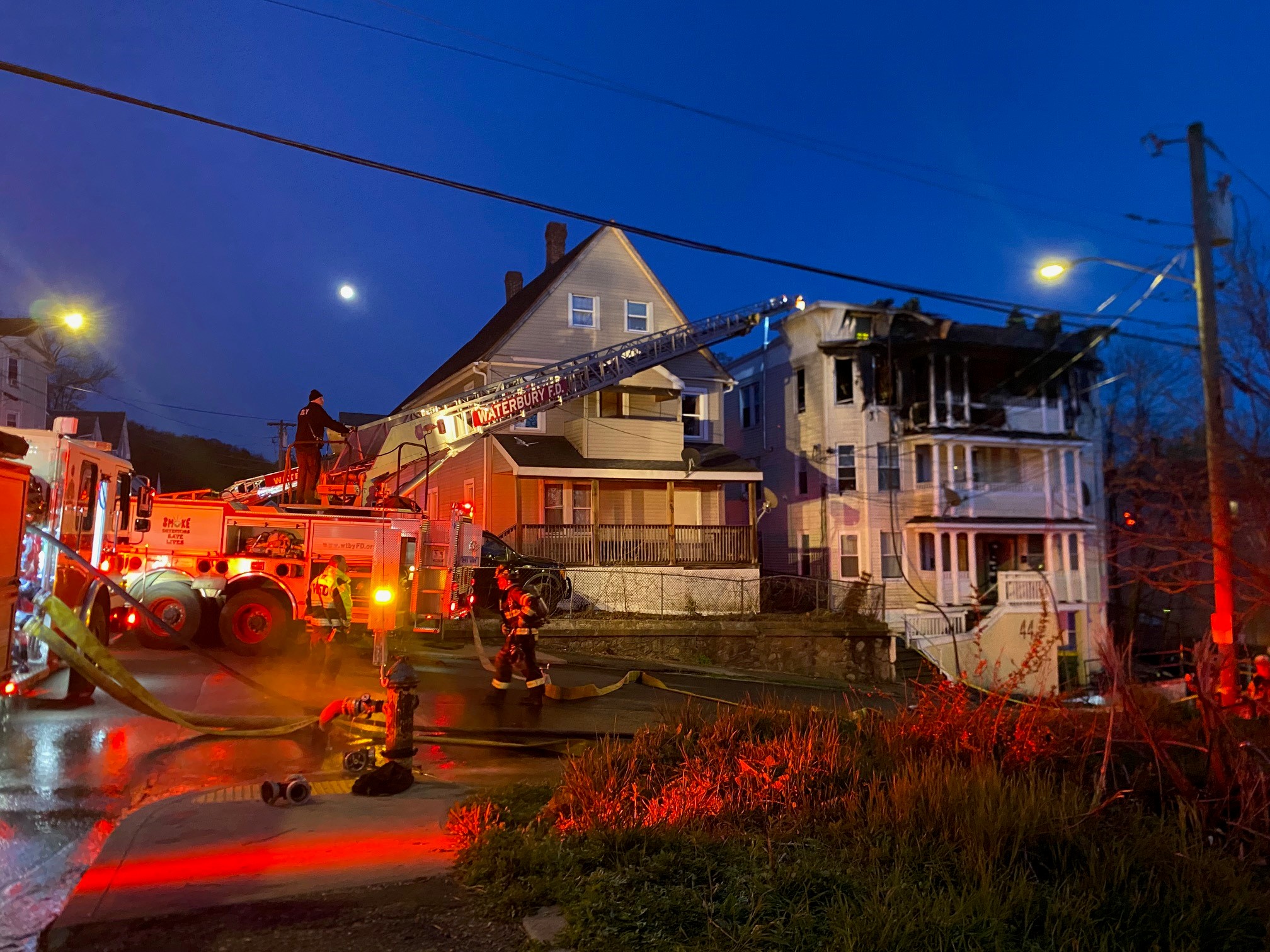They may be cute but Connecticut bears are also raising safety concerns. In 2018, the state says the number of bears entering homes doubled to more than two dozen, and the year isn’t over yet. As the animals move closer to our communities, could it be time for a bear hunt in the state?
NBC Connecticut regularly receives photos and videos from viewers showing close encounters with bears including a young cub checking out a birdfeeder, a group of bears pushing around pumpkins, a group of them messing around with a swing set.
Bob Bouchard sent us a video clip in September of a bear surprising him at his home and then quickly leaving his Southington neighborhood.
“I it startled me for a moment, then I jumped back,” Bouchard said.
Marie Stuckman’s dog had a scary encounter with bears in her Bristol neighborhood. After a bear bit his tail, Charley was left with a stub. Stuckman said she avoids having things like garbage and birdfeeders that attract bears out near her home, and believes it may be time for a bear hunt.
“With bears breaking into cars, and homes, and the fact that they’re being destructive, terrorizing my dog, I don’t have another solution,” she said.
Annie Hornish, Connecticut director of the Humane Society of the United States, said that while the Stuckmans may be doing their part to keep bears away, many people don’t and that needs to happen before a bear hunt.
Local
Bear Sightings in Connecticut (Nov. 2017-Sept. 2018)
“Science shows that hunting does not remedy these situations. What does work is public education,” Hornish said.
Hornish said that in more serious bear nuisance cases, animal control officers can “haze” bears with rubber bullets.
Marcia Cerrone of East Haven prefers that approach.
“Unfortunately, bears, fox, deer, other animals they have nowhere to really go, cause we’re going into their territory,” Cerrone said.
Tom Bradley of Canton said despite preventive measures, he has gone from no bear sightings to several dozen per year.
“I am living here in ground zero in terms of bear country,” he said.
Bradley said bears put holes in his garage to get to the garbage, and when he accidentally left the garage open, one tried to get in his mud room.
“When I turned the doorknob I could feel someone or something on the other side trying to turn the doorknob at the same time.”
A three-year bear study by UConn professor Tracy Rittenhouse determined bears have become “urban adaptors,” preferring neighborhoods with houses every two to three acres to the wilderness. She speculates this is probably because of the extra food available.
“We thought that maybe we just got more phone calls in those areas, because there’s more people in those areas, but our research demonstrated that it’s not that people see the bears more often, it’s that there really are more bears in those types of places,” explained Rittenhouse.
That research, coupled with state projections showing the bear population of 800 will double within a decade, is why Susan Whalen, deputy commissioner of the Department of Energy and Environmental Protection (DEEP), said her agency supports a bear hunt. Hunts are permitted to varying degrees in four out of six New England states, plus New York, and New Jersey.
The Humane Society disputes the state’s bear population projections, and contends a bear hunt won’t work.
“Hunters when they hunt they’re not killing bears that are involved in nuisance behaviors, which are in suburbia, they’re hunting bears that are deep in the woods, so they’re not even targeting, it’s a very non-specific way to address the issue,” Hornish said.
But DEEP points to several studies that refute that claim, and said bears that have become comfortable around humans are among the animals killed during these hunts.
Jesse St. Andre, with the Nutmeg State Sportsmen’s Council, who is also a biologist for a wildlife agency in a neighboring state, said there are ways to safely hunt nuisance bears that frequent neighborhoods.
“If we have a bear, say hitting a neighborhood that just keeps tipping over the trash cans, well if that neighborhood is adjacent to a big wood lot, and that’s where that bear’s living, it’s easy enough to go there and just intercept that bear,” said St. Andre.
DEEP stresses a bear hunt would be just one tool in its toolbox. In rare cases, DEEP will relocate or euthanize bears. But the agency prefers to keep encouraging people to stop attracting bears with garbage, birdfeeders, and unprotected livestock. Those preventative measures are a tough sell in the land of steady habits and those who like birds in their backyard.
It does not appear that a bear hunt will happen in Connecticut any time soon, however. The last two years when it was proposed in the legislature, it failed both times, early in the process.



